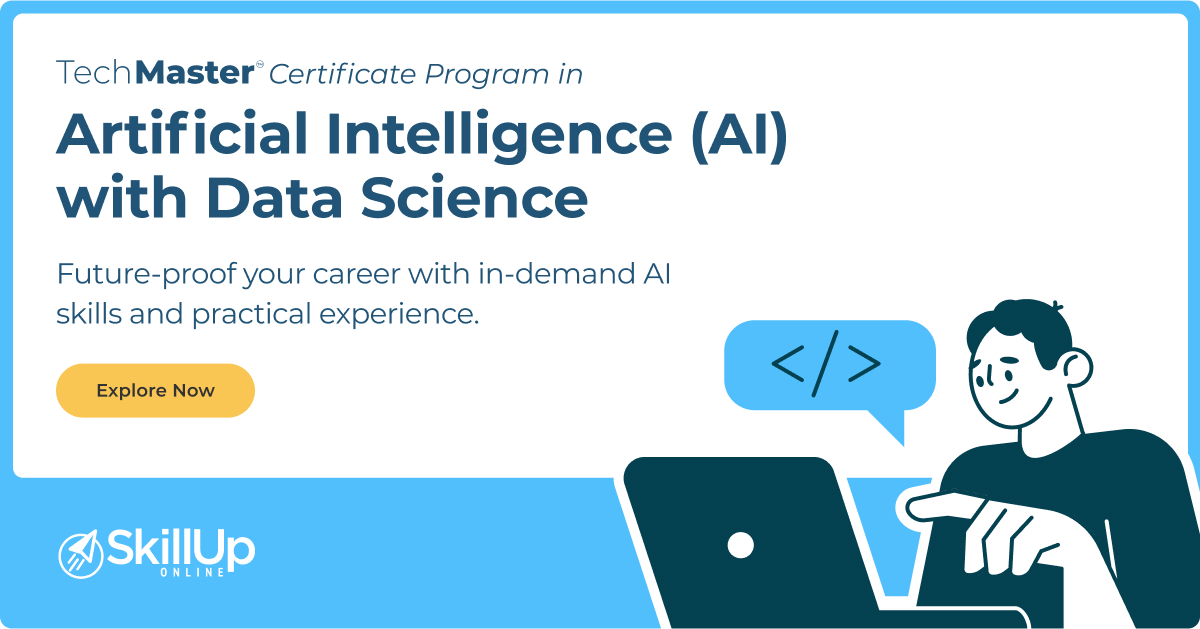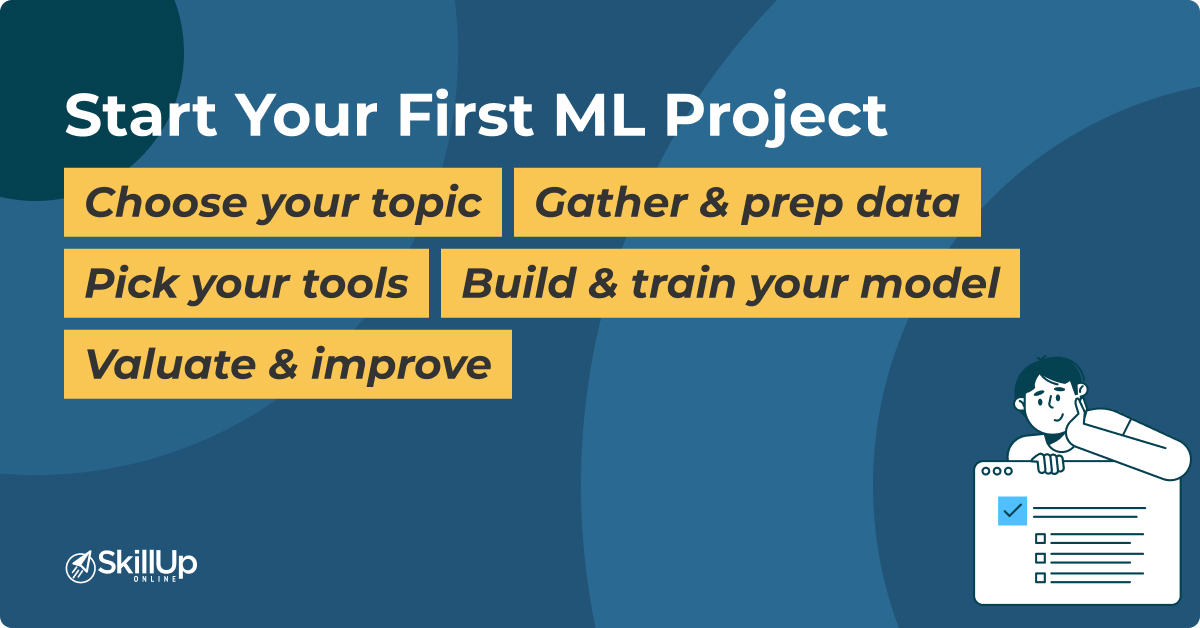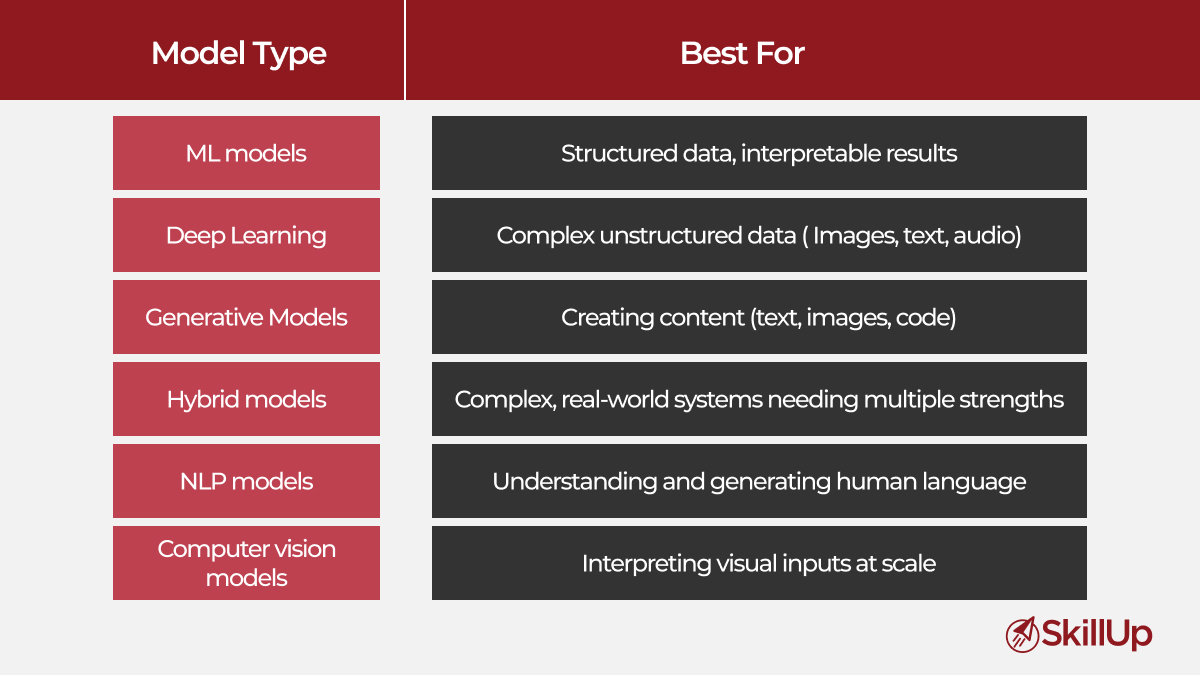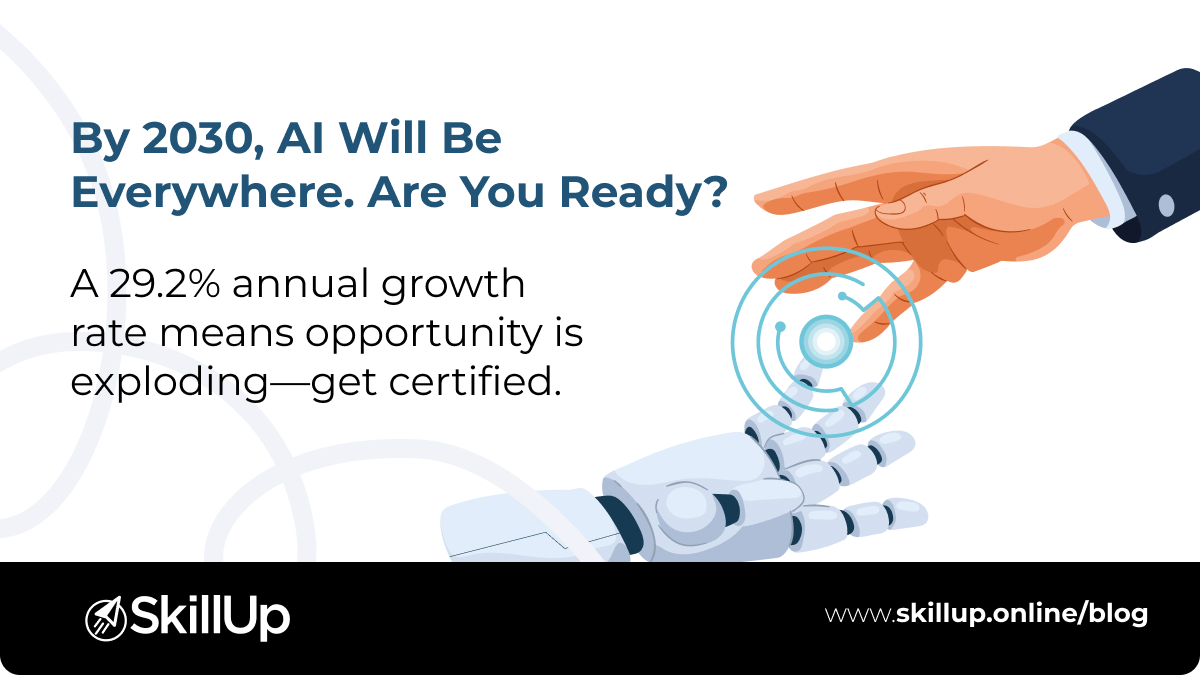Imagine a future where your devices understand your needs before you articulate them, businesses anticipate market shifts with uncanny accuracy, and healthcare is pre-emptively personalized. This is not the stuff of science fiction; it’s the tangible promise of machine learning.
If you’re the threshold of your career or are considering a pivot, the journey into machine learning (ML) offers a path and a leap into the future.
As we embark on this exploration, we’ll unravel the complexities of machine learning, demystifying its concepts, applications, and transformative potential. Whether you’re a curious beginner or a professional looking to pivot, this guide is your gateway to understanding the fundamentals of machine learning and how it can be the key to unlocking a future brimming with possibilities.
Understanding the Basics
Diving into machine learning can be an exhilarating journey. Here’s what you need to know to get started:
- Core Concepts: At its heart, ML is about teaching computers to learn from data. Understanding critical terms like algorithms, models, and types of learning (supervised, unsupervised, and reinforcement learning) is crucial.
- Data’s Role: Data is the lifeblood of ML. Quality, quantity, and variety of data can significantly impact the outcomes of ML models.
- Algorithm Selection: Choosing the correct algorithm is an art and science, influenced by the specific problem you’re solving and the nature of the data.
- Practical Applications: ML isn’t just theory. Its applications range from simple email filtering to complex autonomous driving systems.
If you are eager to delve deeper into these foundational concepts, the blog “Introduction to AI Fundamentals” on SkillUp Online offers a comprehensive overview, perfect for beginners. It covers the essentials of AI and ML, providing a solid foundation for those looking to further their understanding.
Choosing the Right Machine Learning Program
Selecting the ideal machine learning program is pivotal for setting the foundation for a successful career in this field. Here’s what to consider:
- Identify Your Goals: Are you looking to deepen your expertise, switch careers, or start from scratch? Your end goal will significantly influence your choice of program.
- Curriculum Relevance: Ensure the program covers essential topics like data preprocessing, algorithms, model evaluation, and more, providing a well-rounded education.
- Hands-On Experience: Look for programs that offer practical projects and real-world applications. This hands-on experience is invaluable in understanding complex concepts.
- Flexibility and Support: Consider the program’s delivery format—online, in-person, part-time, full-time—and the level of mentorship and support provided.
- Industry Recognition: Accreditation or recognition by reputable organizations can enhance the credibility of your certification in the job market.
If you’re at the crossroads of AI and machine learning, the blog “Should I Choose a Career in AI or Data Science?” provides insightful guidance, helping you weigh your options in the burgeoning fields of AI and data science. This resource can be beneficial in understanding where machine learning fits within your career trajectory.
However, to fully kickstart your practical learning journey, consider exploring courses like the “TechMaster Certificate Program in Artificial Intelligence (AI) with Data Science” offered by SkillUp Online. This program bridges the gap between theoretical knowledge and practical application, providing hands-on experience with real-world projects, and gets you job-ready with advanced level skills.
Skill Set Required to Excel on the Field
Embarking on a machine learning journey requires a blend of technical and soft skills. Here’s a breakdown of the key competencies:
- Programming Proficiency: Proficiency in programming languages such as Python is fundamental. Python’s extensive libraries like NumPy, Pandas, and Scikit-learn are instrumental in machine learning projects.
- Statistical and Mathematical Foundations: A solid grasp of statistics and mathematics is crucial for understanding algorithms and model evaluation.
- Data Handling Skills: Knowing how to preprocess, clean, and manipulate data is essential, as the quality of your data directly impacts your model’s performance.
- Problem-Solving Ability: The core of machine learning is solving complex problems. Developing a solid problem-solving mindset is key.
- Understanding of Machine Learning Algorithms: Familiarity with various algorithms from simple linear regression to complex neural networks, is necessary.
- Continuous Learning: The field of machine learning is ever-evolving. Staying updated with the latest trends and technologies is crucial for long-term success.
If you want to deepen your understanding of the foundational concepts in AI and machine learning, the blog “Introduction to AI Fundamentals” on SkillUp Online is an excellent resource. It covers essential principles and practical applications, providing a solid foundation for aspiring machine learning professionals.
Additionally, the course “Analyzing Data with Python” offered by SkillUp Online is a great starting point for those looking to enhance their data handling and programming skills, which are vital for machine learning.
Real-World Applications of Machine Learning
Machine learning is not just a buzzword; it’s a powerful tool reshaping industries and improving lives. Here are some compelling applications:
- Healthcare: From predictive analytics in patient care to drug discovery and personalized medicine, machine learning is revolutionizing healthcare.
- Finance: Machine learning algorithms are used for fraud detection, risk management, and algorithmic trading, bringing efficiency and security to the financial sector.
- Retail: Personalized shopping experiences, inventory management, and demand forecasting are all enhanced by machine learning, offering a tailored approach to consumers.
- Autonomous Vehicles: Machine learning is at the heart of self-driving car technology, enabling vehicles to make real-time decisions based on complex data inputs.
- Smart Cities: In urban planning, machine learning contributes to energy conservation, traffic management, and public safety, making cities more livable and efficient.
For a deeper dive into how machine learning is paving the way for technological advancement and career opportunities, the blog “How Generative AI Will Impact Your Tech Career Opportunities” on SkillUp Online provides insightful perspectives on the intersection of AI, machine learning, and the job market.
Moreover, individuals interested in exploring the role of machine learning in data-driven decision-making might find the course “Analyzing Data with Python” offered by SkillUp Online particularly beneficial. This course covers essential data analysis techniques and provides hands-on experience, making it an excellent resource for those looking to apply machine learning concepts in real-world scenarios.
Navigating Your Career Path in Machine Learning
Machine learning offers many career opportunities, each with its unique challenges and rewards. Understanding these roles can help you carve a niche for yourself in this dynamic field:
- Machine Learning Engineer: Specializes in creating algorithms and predictive models to make data-driven decisions.
- Data Scientist: Focuses on data analytics, statistical modelling, and machine learning to derive insights and inform business decisions.
- AI Research Scientist: Works on advancing the underlying algorithms that power machine learning and AI technologies.
- NLP Scientist: Focuses on enabling machines to understand and interpret human language.
Getting Started with Your First Machine Learning Project
Embarking on your first machine learning project can be both exciting and daunting. Here’s how to make it a rewarding experience:
- Select a Project Idea: Choose a project that interests you. It could be as simple as predicting stock prices or as complex as building a chatbot.
- Gather and Prepare Your Data: Data is the cornerstone of any machine learning project. Look for relevant datasets online or create your own.
- Choose the Right Tools: Familiarize yourself with machine learning frameworks and tools. With libraries like TensorFlow and PyTorch, Python is a great place to start.
- Build and Train Your Model: Use the data you’ve gathered to train your model. Don’t worry about making it perfect the first time. Experimentation is key.
- Evaluate and Improve: Assess your model’s performance and look for ways to improve it. Machine learning is an iterative process.
If you want to enhance your skills in data analysis and machine learning, the course “Analyzing Data with Python” offered by SkillUp Online is an excellent resource. It covers essential data manipulation and analysis techniques using Python, providing a strong foundation for any machine learning project.
Embracing Tomorrow: The Evolution of Machine Learning
As we navigate the ever-evolving landscape of machine learning, it’s clear that this field is not just about understanding algorithms or mastering data. It’s about shaping the future, one innovation at a time. The journey into machine learning is an invitation to be at the forefront of technological advancement, contributing to solutions that can transform industries, enhance human experiences, and solve complex global challenges.
Your path in machine learning will be unique and filled with endless opportunities for growth, discovery, and impact. Stay curious, stay inspired, and remember, the future of machine learning is yours to shape.
If you’re keen to build the necessary skills and kickstart your journey in machine learning, our Learner Support Team is here to help. Contact us at [email protected], and we’ll gladly guide you on your next steps.
SkillUp Online








